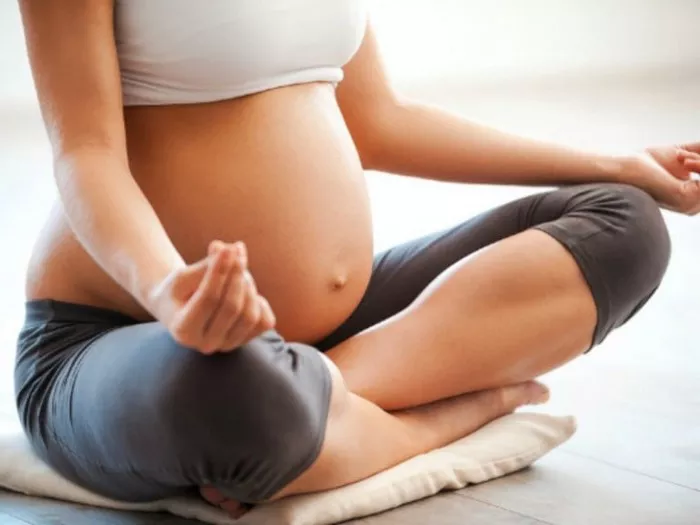Prenatal Vinyasa Flow yoga stands out as a gentle yet effective practice tailored specifically for expectant mothers. It seamlessly blends the principles of traditional Vinyasa yoga with modifications designed to support the unique needs of pregnancy. While the broader benefits of yoga are well-documented, this article delves deeper into the intricacies and advantages of Prenatal Vinyasa Flow yoga, exploring its physical, mental, and emotional dimensions.
Understanding Prenatal Vinyasa Flow Yoga
Prenatal Vinyasa Flow yoga adapts the dynamic sequences of Vinyasa yoga to cater to the changing bodies and energy levels of pregnant women. It prioritizes safety and comfort while ensuring a holistic approach to prenatal fitness and well-being. This specialized form of yoga incorporates gentle stretching, controlled breathing, and mindfulness practices to promote strength, flexibility, and relaxation during pregnancy.
Physiological Benefits
Enhanced Strength and Flexibility: Prenatal Vinyasa Flow yoga helps pregnant women maintain muscle tone and flexibility, essential for supporting the body as it undergoes changes during pregnancy. Strengthening key muscle groups such as the pelvic floor, back, and abdominal muscles can also alleviate common discomforts such as lower back pain and pelvic instability.
1. Improved Circulation: The flowing sequences and controlled breathing techniques in Prenatal Vinyasa Flow yoga promote better blood circulation, which is crucial for both maternal and fetal health. Enhanced circulation can reduce swelling, alleviate fatigue, and contribute to overall well-being during pregnancy.
2. Stress Reduction: Pregnancy often comes with heightened levels of stress and anxiety. Prenatal Vinyasa Flow yoga provides a sanctuary for expectant mothers to unwind, release tension, and cultivate a sense of calm. Mindful movement and deep breathing techniques help alleviate stress hormones, fostering a more relaxed state of mind.
3. Pain Management: Gentle stretches and mindful movements in Prenatal Vinyasa Flow yoga can offer relief from common pregnancy-related discomforts such as back pain, sciatica, and joint stiffness. Learning to listen to the body’s signals and making modifications as needed empowers women to manage pain effectively throughout pregnancy.
Emotional and Psychological Benefits
1. Connection with Baby: Prenatal Vinyasa Flow yoga encourages expectant mothers to cultivate a deeper connection with their growing baby. Through focused breathing and gentle movements, women can foster a sense of awareness and bonding with the life growing within them, fostering a sense of joy and anticipation.
2. Emotional Stability: Pregnancy is a time of profound emotional shifts, ranging from excitement and happiness to anxiety and fear. Engaging in regular Prenatal Vinyasa Flow yoga sessions provides a stable anchor amidst these fluctuations, promoting emotional resilience and a greater sense of balance.
3. Community Support: Participating in Prenatal Vinyasa Flow yoga classes offers expectant mothers the opportunity to connect with other women who are on a similar journey. Building a supportive community can alleviate feelings of isolation and provide a valuable source of encouragement and camaraderie.
4. Empowerment: Pregnancy can sometimes leave women feeling disconnected from their bodies as they navigate unfamiliar changes and challenges. Prenatal Vinyasa Flow yoga empowers women to embrace and celebrate their bodies, fostering a sense of confidence and self-assurance as they prepare for childbirth and motherhood.
Precautions and Considerations
While Prenatal Vinyasa Flow yoga offers numerous benefits, it’s essential for expectant mothers to practice safely and mindfully. Some key considerations include:
1. Consultation with Healthcare Provider: Before starting any exercise regimen during pregnancy, it’s crucial to consult with a healthcare provider to ensure that it’s safe for both mother and baby. This is especially important for women with high-risk pregnancies or underlying medical conditions.
2. Mindful Modifications: Prenatal Vinyasa Flow yoga instructors are trained to provide modifications and adjustments tailored to the specific needs of pregnant women. It’s essential to communicate openly with the instructor about any discomfort or concerns and to listen to your body’s signals during practice.
3. Avoiding Overexertion: While staying active during pregnancy is beneficial, it’s important to avoid overexertion and to honor the body’s limits. Prenatal Vinyasa Flow yoga emphasizes gentle, controlled movements rather than pushing to achieve advanced poses.
4. Hydration and Nutrition: Pregnant women should stay well-hydrated and ensure they’re consuming a balanced diet to support the increased energy demands of pregnancy. Incorporating mindfulness around hydration and nutrition into the yoga practice can further enhance overall well-being.
Conclusion
Prenatal Vinyasa Flow yoga offers a myriad of physical, emotional, and psychological benefits for expectant mothers. By integrating gentle movement, controlled breathing, and mindfulness practices, it provides a holistic approach to prenatal fitness and well-being. As more women embrace this specialized form of yoga during pregnancy, its potential to enhance the pregnancy experience and support maternal health continues to garner recognition. However, it’s essential for expectant mothers to approach Prenatal Vinyasa Flow yoga mindfully, prioritizing safety, communication with healthcare providers, and self-care throughout their journey to motherhood.






















